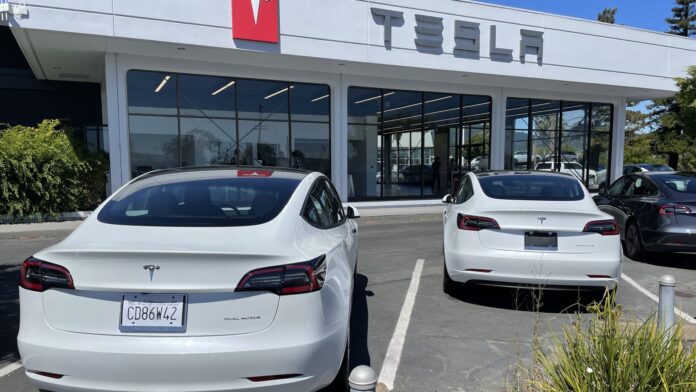Another tough year will be in store for electric vehicles and the auto industry more broadly, Morgan Stanley said Wednesday. Analyst Adam Jonas is expecting a “challenging” 2023 for auto earnings on the back of declining demand and deflation – particularly for electric vehicle makers. For the year ahead, Jonas said price mix should fall more than expected as a lack of affordability in new car prices has reached what he calls “unchartered territory.” He said that mix must come down even further than already forecast if companies want to see growth amid a deteriorating economic backdrop. He said the story will also change for electric vehicle makers like Tesla , as more than six-month wait times in 2022 should evolve into repeated price cuts in an attempt to buoy demand. But, he did say there could be stocks worth buying in this bleak market. “As the year evolves and as forecasts and stock prices decline, we are preparing for some potentially exciting value opportunities to emerge,” he said in a note to clients. “A window is opening for those who can look through the elevated levels of volatility.” Here are some of Jonas’ top picks for 2023. Norwegian battery manufacturer Freyr made the list as it is in “the early innings of an unprecedented era of battery demand,” he said. His price target of $26 implies a 134.5% upside from where the stock, which is down just 0.8% this year, closed on Tuesday. Legacy automakers must navigate this period and reserve capital correctly, he said. Jonas recommended the big car makers “reconsider” the size and timing of electric vehicle investment plans made for 2023 at a time when the economic outlook was stronger. He said Detroit-based companies such as Ford continue supporting development of electric vehicles with less up-front expenditures and more collaboration with commercial partners. Ford made the list for his 2023 top picks, with Jonas saying he expects management to be able to reposition the company’s portfolio and better align capital between electric vehicle and internal combustion engine investing. Ford lost 34.7% this year. But Jonas’ price target implies the stock could gain 10.6% from where it closed Tuesday. Jonas cut the expected electric vehicle penetration forecasts for 2025 and 2030 to 11% and 26%, respectively, from 13% and 32%. But for next year, he expects electric vehicles sales to hit 11.8% global penetration in 2023, which would mark an increase from 10.1% in 2022. Penetration in the U.S. is expected to reach 5% in 2023, up from 4.2% this year. Tesla and Rivian are both electric vehicle makers among his top picks. He said Tesla emerged as the clear electric vehicle winner during the pandemic and should continue performing well given its presence in the battery supply chain and rolls out truck offerings next year. Jonas said Rivian, a smaller but notable competitor, has “strong” reservation numbers that provide confidence in future demand and the success of its marketing. Both stocks were beat down this year but have the potential to more than double in value. Tesla has lost 54% of its share value this year, but the price target shows it could rally 105% from where it closed Tuesday. Rivian, down 75.9% in 2022, has a price target showing an upside of 120.4%. About 15 million new cars are expected to be sold in 2023 on a seasonally adjusted basis, according to Morgan Stanley, which would be up 7% from year-to-date performance in 2022. But he said the souring economy will be a headwind to auto sales that will put downward pressure on prices. At the same time, he said supply chain issues should somewhat ease, though global production will still be below pre-pandemic expectations. Jonas said Carmax is the “best managed, least-over earning auto dealer retailer within our coverage,” though he admitted it is a relative call given 2023 will bring a revision in used car and auto credit fundamentals. Still, he said he’s constructive on the company’s ability to execute a multi-channel business. The stock, which is down 48.4% this year, has a price target that shows it could gain 34% over Tuesday’s close. — CNBC’s Michael Bloom contributed to this report.
© heardonwallstreet.com


